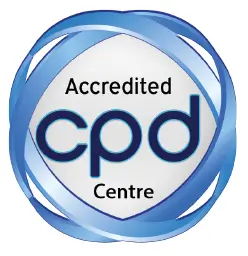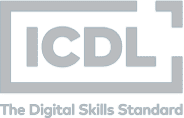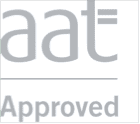The Manual section of the course is comprehensive and covers all of the key payroll areas you will need to learn in order to effectively process a business payroll. Areas you will study include employment contract legislation, such as working hours, overtime and the minimum wage. Tax Credits and Universal Charge Certificate (Form P2C) and how to use this form to calculate an employee’s tax liability, completing pay records and understanding the P45. You’ll also review the purpose of Pay Related Social Insurance (PRSI) contributions and how to calculate these as well as look at the purpose of the P35 annual return and the different forms which are included.
In the Computerised section the lessons include getting started using Sage Micropay. You’ll look at how to set up company information and employee details, how to set up hourly rates and payments in order to process pay and produce associated reports. The computerised section is highly practical and you will have the opportunity to carry out extensive ‘real life’ consolidation exercises to ensure you fully understand the processes involved.
There are extensive consolidation exercises in both sections, so that you can build on your aptitude for figures and develop your knowledge of Payroll to give you an invaluable skill. This course is designed for flexible learning – so you can fit it around your life and progress at your own pace. If the need arises, our course advisors will also be on hand to provide expert help whenever you need it and you’ll keep your workbook as a handy reference guide.
What’s more, you’ll always have the invaluable Pitman Training name on your CV. And if you’re looking for a career in Book-keeping or HR, you should definitely consider our Book-keeping Diploma or the Pitman Training Advanced Accounts Diploma, both of which provide essential skills for working in Accounts and Finance. Call us on 1800 532632 to find out more.
There are eight lessons within the Manual and Computerised Payroll course which cover the following:
Lesson One – What payroll is, roles and responsibilities of payroll, identifying the employee information held by a business, the importance of data protection with regard to employee rights, what must be included in a written contract of employment, legislation in respect of working hours and overtime, the national minimum wage, employment time records, calculating gross pay for an employee to include overtime rates and holiday pay, the purpose of a Tax Credits and Universal Charge Certificate (Form P2C)
Lesson Two – Using the information provided on Form P2C to calculate an employee’s weekly net tax liability, completing pay records for employees on a cumulative tax basis, to include variable weekly gross pay, advance holiday pay, income tax and USC refunds, pension contributions, understand the purpose of a P45, when a P46 must be used, when Form 12A must be used, processing a new starter on a Week 1 basis, when Emergency basis is used, the effect of a revised P2C on an employee’s pay, the benefit of a pre-tax deduction (pension contribution)
Lesson Three – The purpose of Pay Related Social Insurance (PRSI) contributions, calculating PRSI, completing the pay records to all include all statutory and voluntary deductions, how to prepare a P45 for a leaver, what must be included on a payslip, postings to The Payroll Ledger, calculating the cost of wages, the purpose of Form P30, awareness of mandatory e-filing
Lesson Four – Purpose of the P35 annual return and the different forms which are included, the purpose of Form P60, different tax assessment methods and how to use to calculate annual tax liability, the effect of budgetary changes on net take home pay
Lesson Five – Protecting confidential data, advantages/disadvantages of a computerised payroll system, starting the Sage Micropay program, logging in to a payroll, setting up basic company details, accessing Micropay Help, setting hourly rates and payments, viewing employee details, creating employee records, navigating employee records, backing up data.
Lesson Six – Restoring payroll data, editing employee details, set a pay calendar for the tax year, process pay for to include advance payments in respect of holiday pay, producing a variety of payroll reports, and save as PDFs, backing up payroll data at the end of each pay period, viewing year to date details in the employee records, preparing the P30.
Lesson Seven – Processing a New Starter with and without a P45, the initial steps when creating a P45 or P46 for submission to ROS, setting up payments and deductions, transferring an employee from Week 1 Basis to cumulative, using the batch time and pay method to enter pay details, processing a revised P2C, processing a Leaver and producing a P45, processing pension contributions and producing the associated pension provider report, producing the P30 for Week 9/Month 2
Lesson Eight – Processing the pay for Week 51 to include bonus and overtime payments, as well as advance pay in respect of holiday closure, tax year end procedures, previewing and saving the P35 and PRC1 reports as PDFs, previewing and saving the P60s as PDFs





















